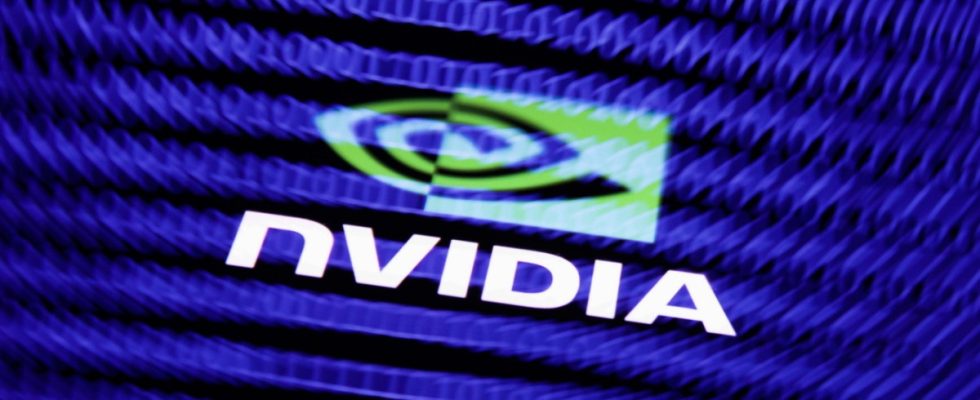Anyone who currently wants to play in the league of the best AI models cannot ignore Nivida. The company controls around 80 percent of the market for the best AI chips and recently became the third most valuable company in the world.
On Tuesday evening, Managing Director Jensen Huang, as always in a black leather jacket, presented the latest chip in Silicon Valley. It’s called “Blackwell”, named after the mathematician David Blackwell, and it replaces the Hopper series named after the computer pioneer Grace Hopper. The new product will not only operate AI, but also robots and other sophisticated simulations in the future.
Computer and AI chips largely derive their performance from their number of transistors. These are tiny switches that allow the chips to process data. The new Blackwell chip has 208 billion transistors, each about four nanometers wide. For comparison: a red blood cell is around 7,000 nanometers wide.
The new chip is said to be more energy efficient
Blackwell consists of two interconnected chips that are about the same size as the previous generation. Two Blackwell chips can be combined with an additional computer processor to form a system that, according to Huang, will “drive a new industrial revolution” through AI.
But the AI models are not only hungry for data, but also energy. Therefore, Blackwell should not only become more powerful, but also more efficient, Huang said at the conference. If the training of the well-known Chat-GPT chatbot with the previous system required 90 days and 8,000 Nivida chips with a power consumption of 15 megawatts, Blackwell could do it in the same time with just 2,000 chips and four megawatts. This increase in performance should further cement Nvidia’s dominance in the chip market.
The big tech companies are trying to catch up
This is necessary because the big tech companies are not only Nvidia’s customers, but also competitors. They are all currently investing billions in the computationally intensive development of artificial intelligence and are therefore all more or less dependent on Nvidia. Meta, Google, Microsoft and Apple are now producing their own chips to reduce this dependency. However, designing and manufacturing the chips is notoriously difficult and capital intensive, which is why no one has yet caught up with Nvidia. On Tuesday, Huang listed the tech companies as likely customers for the Blackwell chips. He didn’t mention prices, but the previous model usually cost more than $20,000 each.
Despite all this, the markets reacted cautiously to the announcement. Nvidia’s shares even slipped slightly into the red. This isn’t really a cause for concern, as both the company’s value and sales have multiplied in the past two years.

